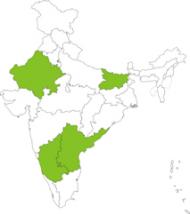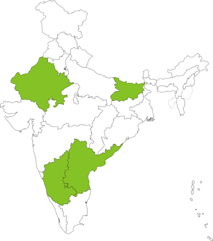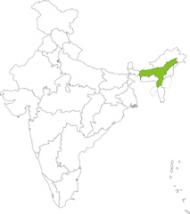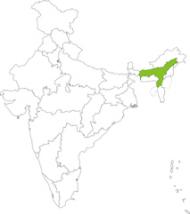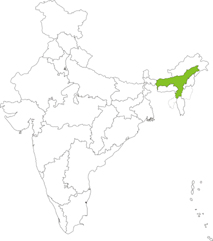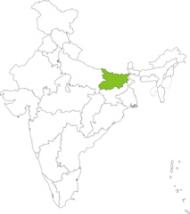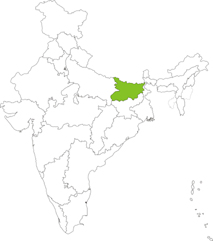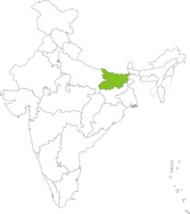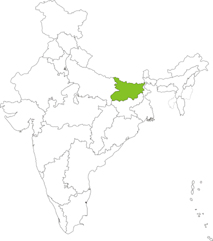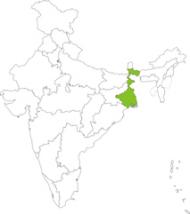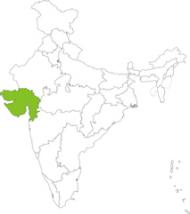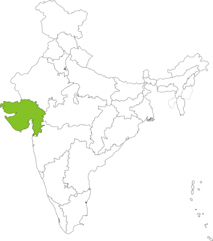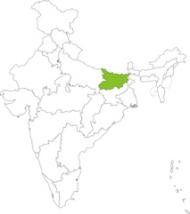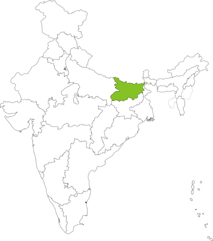
ASER Centre
Evidence for action- Home
- About Us
- ASER Survey
- Research & Assessment
- Capacity Building
- Publications & Reports
- ASER Reports
- ASER Data Over Time
- ASER 2022: Chhattisgarh
- ASER 2022 'Young Children'
- ASER 2022
- ASER 2021: West Bengal
- ASER 2021: Chhattisgarh
- ASER 2021
- ASER 2020 Wave 1
- ASER 2020 Digital Recheck
- ASER 2020: Karnataka
- ASER 2019
- ASER 2018 'Young Children'
- ASER 2018
- ASER 2017
- ASER 2016
- ASER 2015: Maharashtra
- ASER 2015 : Punjab
- ASER 2014
- ASER 2013
- ASER 2012
- ASER 2011
- ASER 2010
- ASER 2009
- ASER 2008
- ASER 2007
- ASER 2006
- ASER 2005
- Odisha Tribal Study 2022
- ASER Health Report
- Study on Access, Transition and Learning in Secondary Education
- India Early Childhood Education Impact Study
- Urban Ward Surveys
- Bihar Elementary School Study
- Inside Primary Schools
- PAHELI
- External Publications
- ASER Reports
- Data Query
- Impact
SMALLER RESEARCH AND ASSESSMENT STUDIES IN EDUCATION
Language Support for Young Children in Assam
In an effort to explore literacy and learning levels within the multi-lingual context in Assam, ASER Centre along with Pratham set up the Language Support for Young Children programme in Kokhrajar district in 2010. The objective of this project was to provide specialised language learning support to children in primary schools (Std 1 to 4). The project provided home language and bilingual support to children, in order to introduce them to Assamese and helped them to develop their competence in reading, writing and oral language skills to successfully engage with the school curriculum. Language support was provided via volunteers from the community who were trained by Pratham.
Classroom activities in the last year included oral language development, reading, writing, Math, producing TLM (colour conversation posters, reading material in Rabha, Santhali, Assamese, handbook of songs in home languages and Assamese, monitoring and support.
Duration: 2008-present
Partners: Pratham, Assam
Location: Assam (Kokhrajar district)
Documents: Project overview
2012-2013 Report
This project provides specialised language learning support to children in primary schools (Std 1 to 4) in Kokhrajar district, Assam
Choice and cost: The Role of Household Decisionmaking and Expenditure on Secondary Education in Rural Bihar
In the last ten years Bihar has made tremendous progress in universalizing elementary education and encouraging students to continue to the secondary stage. In addition to expansion in the number of schools and teachers, various incentive programs have been implemented to encourage students to continue studying the elementary level, such as the now widely known cycle scheme for girls.
Given this background, the objective of the study is to understand the educational choices that households make and expenditures they undertake for children going from upper primary to secondary school in Bihar. The study will examine the type of school as well as the type of tuition or coaching that students attend and the expenditures their families incur for this. Results from this study will feed into a larger understanding of the growing secondary education sector in Bihar – achievements, challenges and constraints.
Duration: 2014-15
Partners: International Growth Centre, Bihar
Location: Sahebganj block, Muzzaffarpur district, Bihar
Documents: Project overview | Project summary
Idea-Pratham English Seekho Assessment
ASER Centre is conducting a learning assessment to evaluate the impact of an intervention programme to help improve English (reading, comprehension) skills of students / young adults who receive lesson cards using cellphone technology. Implemented through Library Clubs, simple concepts such as alphabets to more complex concepts such as word usage and sentence construction are taught through these lesson cards.
Along with gauging the impact of the programme on English skills, the study also tries to understand the perception of students, parents and librarians regarding the usage of mobile phone as a learning enhancement tool.
Duration: October 2013 to July 2015
Partners: Idea Cellular
Location: North India – Delhi, Dadri and Lucknow (Uttar Pradesh), Pilani (Rajasthan) and West India (Maharashtra) – Mumbai, Pune, Talasari and Vikramgarh (Thane)
Documents: Project overview
Learn Out of the Box (LOTB) Assessment
An initiative of Pratham Education Foundation in partnership with Vodafone, Learn Out of the Box (LOTB) is an intervention which introduces technology as a teaching tool in schools. The program intends to enhance teaching-learning in low income schools with the aid of technology, enrich lesson planning and in-class experiences of teachers, engage students by making learning fun, enhance students’ classroom experiences by diversifying learning activities and to improve student learning outcomes, be it subject specific or in a broader context. ASER Centre is conducting a study to understand the impact of the Learn Out of the Box programme.
Partners: Pratham, Vodafone
Duration: 2014-2015
Location: Karnataka, Andhra Pradesh, Telengana, Maharashtra, Rajasthan, Jharkhand, Bihar, Himachal Pradesh, Uttarakhand, Delhi, Tripura, Assam.
Documents: Project overview
Assessment for Multilingual Education
Read India has been conducting learning camps for children in the West Singhbhum district of Jharkhand who speak a tribal language other than Hindi. Classrooms comprise children speaking 2 to 3 different languages. Home and community support in learning Hindi is scarce. The Read India camps focus on creating smooth learning trajectories and various models like community libraries for these children. Pedagogical and instructional strategies are also being devised around this problem.
Partners: Pratham, TATA (Jharkhand)
Location: West Singhbum, Jharkhand
Duration: 2015- 2017
Documents: Project overview
Urban Ward Surveys
The Right of Children to Free and Compulsory Education Act 2009 came into force on April 1, 2010. This series of studies was conducted in one mixed or low income municipal ward in each of five cities of India to assess the status of schooling and learning of children. The data collected was then matched with the provisions of the Law to assess what would be required in order for these cities to meet requirements. A report card was created for each surveyed ward.
Duration: 2011 - present
Partners: Pratham
Location: Delhi, Hyderabad, Patna, Jaipur, Mysore (one ward in each city)
Documents: Urban ward survey reports
ARK-ENABLE Program
UK-based ARK (Absolute Return for Kids) is an international organisation whose work focuses on health, education and child protection around the globe.ARK-India’s flagship project,ENABLE (Ensure Access to Better Learning Experiences), is designed to support the Indian government's policy of all children having the right to affordable, quality primary education.
Through ENABLE, ARK seeks to develop a model of excellence to provide underprivileged children a realistic chance of accessing and performing well in recognised private schools by ensuring they are appropriately targeted, fairly selected, effectively included and integrated, and financially supported through an acceptable reimbursement mechanism.
ASER Centre’s evaluation of this project will carry out assessments to obtain competency-wise learning outcomes of the children who participated in the programme, aimed at understanding gaps in learning to help direct the intervention better.
Partners: ARK-Enable
Duration: 2012 - Present
Location: Low-income areas of North and South Shahdara, New Delhi.
ARK seeks to develop a model of excellence to provide underprivileged children a realistic chance of accessing and performing well in recognized private schools by ensuring appropriate targeting, fairly selected, effectively included and integrated, and financially supported acceptable reimbursement mechanisms.
Same Language Subtitling (SLS) Study - Baseline Assessment
Planet Read (www.planetread.org) has used Same Language Subtitling (SLS) to improve adult literacy in the past. The current study is to evaluate whether SLS can improve literacy particularly in children. ASER Centre is conducting the baseline and end line of the SLS study as per the requirements stated by Planet Read.
The objective of the study is to evaluate the impact of SLS exposure on the reading skills of children, aged 6-14, who are not fluent readers. The program has been rolled out in four districts of rural Maharashtra. The impact will be compared with outcomes in Gujarat (two districts of Gujarat which have the same learning level as in Maharashtra were chosen) with no SLS telecast.
Partners: Pratham, Planet Read, Manav Kalyan Seva Trust, Navsari (district partner) and Samarpan Foundation, Vadodara (district partner)
Duration of study: June 2013 - June 2015
Location: Maharashtra (Districts - Akola, Nandurbar, Parbhani and Wardha), Gujarat (Districts - Bharuch and Narmada)
Documents: Project overview.
A baseline assessment of children in Maharashtra to understand the effect of 'Same Language Subtitling' exposure on their learning levels.
Assessment of Teaching and Learning, Dhamtari
The Chhattisgarh government has been carrying out the Minimal Learning Level (MLL) programme which defines grade wise learning outcomes to be achieved during a school year. In collaboration with the district administration in Dhamtari, ASER Centre conducted a study to understand the current learning outcomes of children in government primary and middle schools and the factors that influence/interact with teaching and learning in government schools. All children in Std 1 to 8 in the district were assessed to track progress under this programme.
Partner: District administration, Dhamtari
Duration: April 2015
Location: Dhamtari, Chhattisgarh
Documents: Project overview
Research and Development, Masuda
Pratham has been conducting a yearlong intervention in schools of Masuda, Rajasthan. The idea behind this study is to build comprehension skills and understanding Grade 4 level authentic texts in language and to build mathematical ability at the Grade 4 level. ASER Centre will be conducting assessment of the impact of the RnD Masuda programme.
The Rnd Masuda program intends to develop meta-linguistic skills to create independent fluency and proficiencies of grade 4 level texts, familiarize children to help them read and comprehend Grade 4 level authentic text, develop children's ability in such a way so that they can look at a text as a unit of meaningful sentences instead of focusing on grammar, develop their ability to relate vocabulary to semantics, develop writing skills inclusive of expressive vocabulary and grammatical correctness and help children acquire abilities and proficiency in Grade 4 level Math competencies as covered in the state textbooks.
Partners: Pratham
Duration: January 2015 - January 2016
Location: Masuda, Rajasthan
Documents: Project overview
STIR Reading Programme Evaluation
The intervention by STIR (www.stireducation.org/) includes forming networks of teachers, and supporting them to innovate and implement ideas and practices (micro-innovations) to improve children learning outcomes. Each teacher network consists of 10-12 schools (30-35 teachers) and is supported by cluster resource coordinators (CRCs). These teacher networks meet once a month to plan the implementation of ideas and discuss the progress with their colleagues. For this specific project focused on early reading, teachers in STIR networks will implement at least one reading related idea in their two year journey with STIR. ASER Centre will be conducting learning assessments of children over the next three years to track the progress made in reading and comprehension levels under this programme.
Location: Varanasi and Rae Bareli, Uttar Pradesh
Partners: STIR Education
Duration: July 2015 to July 2018
Documents: Project overview
Child Friendly Schools & Systems (CFSS) - A Baseline study of Government Primary Schools
One of the salient features of the Right to Education Act, 2009 is the emphasis on child-friendly methods and systems of teaching and learning in classrooms.The CFSS, a baseline study of Govt. Primary Schools was an attempt to assess promotion, protection and support of child-friendly initiatives in the state of Assam.
The main objectives of the assessment were to assess the learning outcomes of Std I to V government school students in language (Assamese), Math and English, develop testing instruments to assess the learning outcomes of Std III- V in Environment Science (EVS).
Duration: 2011
Partners: UNICEF (Assam), Sarva Shiksha Abhiyaan (Assam) and Pratham
Location: Assam
Baseline Study of Government Primary & Upper Primary Schools
This study surveyed 330 government schools in three districts of Assam, to assess the learning outcomes of Std IV and VI students. The study collected data on children’s learning in language (Assamese), math and English. It also assessed the quality of the available infrastructure and facilities such as classrooms, teacher learning material, toilet facilities, drinking water, and trends in enrollment and retention of children over the last three years in lower primary schools (among Std IV students only).
Duration: 2011-2012
Partners: Sarva Shiksha Abhiyaan (Assam) & Pratham
Location: Assam (Baksa, Chirang and Udalguri districts)
Children's Learning in Bihar
Aga Khan Foundation runs several Learning Support Centres (LSC) in Pusa block of Samastipur and Murual block of Muzaffarpur district. Run by trained village volunteers, these centres provide additional academic support to more than 3,000 underprivileged children who are regular government school students in Std 1-5. To make any intervention successful, it is important to measure the outcomes on a regular basis. This not only gives us an idea of whether the intervention is progressing or not but also pointers on what/where needs to be improved. Aga Khan Foundation also felt that their LSC intervention in Bihar needed a sustainable assessment system, which later on can be managed and run by the local teams.
In order to create such a system and also to build capacity of the LSC team in Bihar, a collaboration between AKF and ASER Centre was initiated and ASER Centre was given the responsibility of designing with the assessment system for these LSCs.
Duration: 2011
Partners: Aga Khan Foundation
Location: Bihar
Kilkari Bal Kendra Assessment
ASER Centre conducted an assessment of 20 Bal Kendras under the Bihar Government’s ‘Kilkari Bal Kendra’ programme, with the objective of assessing the overall functioning and effectiveness of a programme aimed at developing a child’s extracurricular skills and confidence level.
The ‘Kilkari Bal Kendra’ programme focuses on teaching children extracurricular activities such as drama, art, dance, music, sports etc. Each Kendra is housed in a school or an NGO in Patna.
Children and parents were asked to explain how they perceived the programme and the reasons for participating in it. Headmasters were asked about the impact of the Kendra activities on children’s attendance, learning levels in school and school functioning. Kendra co-ordinators were asked to give feedback on activities and suggestions for improvement. The primary mode of conducting the assessment was through direct observation on the day of the visit (unannounced) and interviews with primary stakeholders.
Duration: 2011 -2012
Partners: Bihar Bal Bhavan - Government of Bihar & Pratham
Location: Bihar
Kolkata Municipal School Evaluation
In Kolkata, there are 266 Kolkata Municipal Schools, of which 154 are Bengali medium, 56 are Urdu medium and 46 are Hindi medium. The remaining few schools are Bengali+Hindi medium, Urdu+Hindi medium and English medium schools.
In collaboration with the Kolkata Municipal Corporation (KMC), Pratham and ASER Centre undertook a survey to assess the learning levels of children in Std I – V in all the Kolkata Municipal Corporation- run schools.
Duration: 2012
Partners: Kolkata Municipal Corporation, Pratham
Location: Kolkata
Gunotsav Process Audit
‘Gunotsav’ or ‘Celebrating Quality’ was initiated by the Gujarat government in 2009 to improve the quality of schooling in the state. It is a mass assessment process which audits the utilisation of educational and physical infrastructure available for schools. The main objective of Gunotsav is to ensure that all children studying in primary schools (Std 2 to 7) achieve basic reading, writing and numerical skills. In 2011, Pratham and ASER Centre conducted a process audit of Gunotsav.
The objectives of the process evaluation were: First, to monitor a sample of schools during the evaluation to establish whether the intended process was being carried out by the officers; and second to evaluate whether the objectives of the Gunotsav program were being met and if the process could be improved in any way.
Duration: 2011
Partners: Government of Gujarat, Pratham
Location: Gujarat
Gyanshala assessment
Pratham has been running six residential Gyanshalas since 2006 in two districts of Bihar - Sitamarhi and Kishenganj with the objective of providing a model for sustained rehabilitation of rescued child labourers through education. Four more Gyanshalas were set up in 2009.
Over the last couple of years, Gyanshala children have fared well in the academic and sports arena, some even getting admission into prestigious Navodaya schools. Beginning 2008, most of the children have joined mainstream schools and have been performing well. But an assessment was critical to gauge whether the goals of the Gyanshala program were being met.
An assessment was carried out by ASER Centre in order to:
- Identify gaps for improvement in learning levels of students
-Build capacity of students and teachers through workshops and training.
Partner : Pratham
Duration: 2010
Location: Bihar
The role of VEC/PTAs/SMDCs/Urban Local Bodies in School Management and Supervision in the Context of SSA:Case study of Bihar
This multi state study provided information on the roles, functions, rules, regulations, composition and power delegated to Village Education Committees (VEC) and their link with Panchayati Raj Institutions (PRI) and other functionaries. ASER Centre was responsible for the Bihar case study.
Duration: 2009 - 2010
Partners: National University for Educational Planning and Administration (NUEPA)
Location: Bihar
© 2025 ASER CENTRE | B 4/58 Safdarjung Enclave, New Delhi 110 029 | 91 11 4602 3612 / 2671 6084
